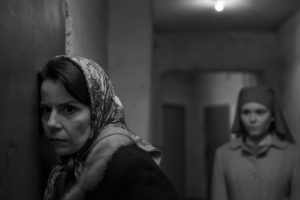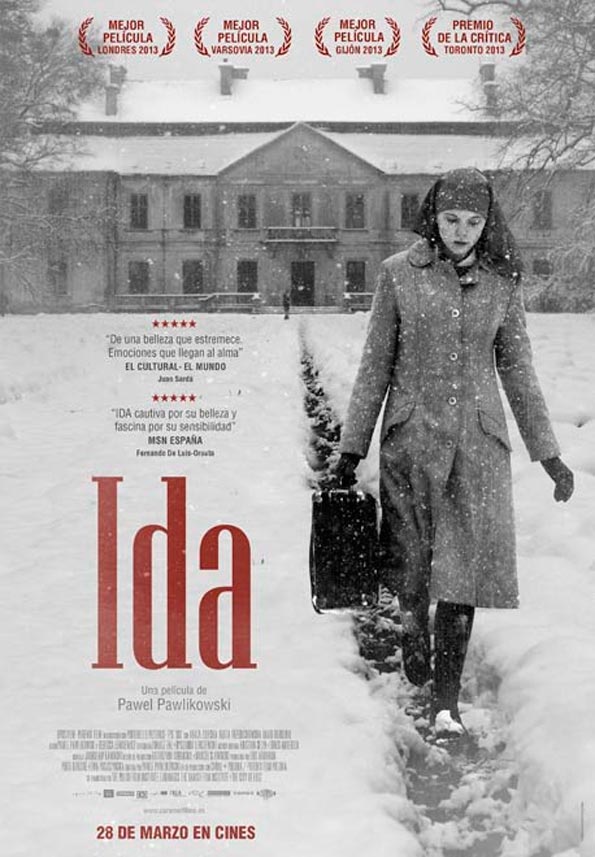 Ida is one of those extremely beautiful but ultimately depressing films. It is the story of an 18-year-old Polish orphan who was brought up by nuns and is about to take her vows, but first she has to visit an Aunt she knew nothing about, because her Mother Superior insists they meet before deciding on her future. The film is mostly her road trip with this aunt named Wanda to discover who she is and what happened to her family during World War II. It is also her first taste of the outside world, with the sad, alcoholic aunt as her tour guide.
Ida is one of those extremely beautiful but ultimately depressing films. It is the story of an 18-year-old Polish orphan who was brought up by nuns and is about to take her vows, but first she has to visit an Aunt she knew nothing about, because her Mother Superior insists they meet before deciding on her future. The film is mostly her road trip with this aunt named Wanda to discover who she is and what happened to her family during World War II. It is also her first taste of the outside world, with the sad, alcoholic aunt as her tour guide.
It is the 1960s, and Poland is not all that far removed from World War II. The young nun named Anna discovers that her family were Jews, and her name was Ida. And that her parents were murdered during the Nazi occupation and lay buried somewhere in the woods. Together the women are going to find them. While Anna has her faith to keep her secure, Wanda has a much harder time reliving the horrors that were perpetrated on her family and is the antithesis of her chaste, good nun niece. It is hard to know what Anna thinks and feels about what is happening around her, and there are definitely aspects of the world her Aunt shows her that are intriguing for her, particularly a handsome young jazz musician they pick up hitchhiking.
 The central question in Ida is what will Anna do with the newfound knowledge of her family history and the wider world outside the convent walls. It is shot in some of the most gorgeous black and white I’ve seen in a long time. Every frame could be a still in a gallery, which is both fabulous and at times takes you out of the film. I would recommend this to foreign film lovers and photographers. It is not for the mainstream crowd. You must be willing to watch a film with subtitles, but at 80 minutes, the pacing is pretty tight, and it really does fly by.
The central question in Ida is what will Anna do with the newfound knowledge of her family history and the wider world outside the convent walls. It is shot in some of the most gorgeous black and white I’ve seen in a long time. Every frame could be a still in a gallery, which is both fabulous and at times takes you out of the film. I would recommend this to foreign film lovers and photographers. It is not for the mainstream crowd. You must be willing to watch a film with subtitles, but at 80 minutes, the pacing is pretty tight, and it really does fly by.

